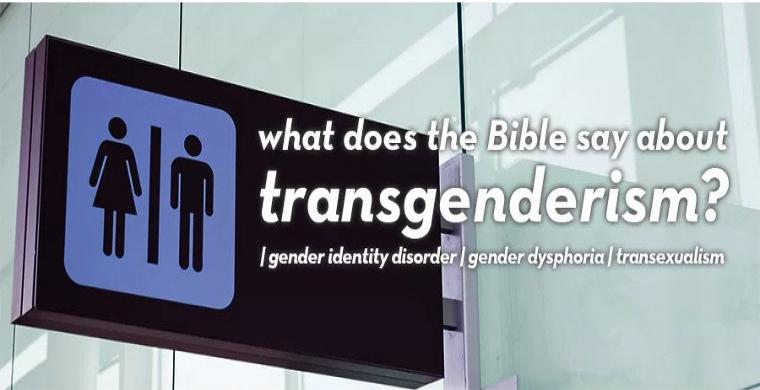The Trans dilemma: human dysphoria and the Life of Brian
By Gavin Ashenden
www.virtueonline/org
September 1, 2017
As so often, Monty Python got there first. The Life of Brian placed a mirror before us.
In the amphitheatre the hopeless revolutionaries are sitting plotting in a corner. But Stan keeps interrupting:
"Why are you always on about women, Stan?"-
After a long pause Stan mutters, "I want to be one....I want to be a woman. From now on I want you all to call me Loretta.
Reg: What!?
Stan: It's my right as a man.
Judith: Why do you want to be Loretta, Stan?
Stan: I want to have babies.
Reg: You want to have babies?!?!?!
Stan: It's every man's right to have babies if he wants them.
Reg: But you can't have babies.
Stan: Don't you oppress me!"
When I first saw the film, I laughed and laughed. The comedy was sharp and brutal. But tragedy and comedy lie very close together. I've only recently seen the tragedy. A friend of mine has a teenage child who suffers from gender dysphoria, and the whole family has had to make this frightening and strange journey together.
Fortunately, only 0.05% of people suffer this kind of mental discomfort. Dysphoria is a strange word to use. Few people know what it means. We know about euphoria- a sense of joyful delight -- well, this is the opposite. It's about deep discomfort. It starts with a sense of not belonging in your own body, and then moves to a state of wanting or needing the body to change so that it eases the state of the uncomfortable mind.
The BBC found a trans hero the other day to represent its piece on gender re-assignment. He/she was a former boxing promoter Kellie Malone. The macho world of boxing was a very long way from pub barmaid- a place he/she has journeyed to. Kellie was welcoming the new Government proposals to make sex change easier.
But there may be a deeper principle at stake here. We have shifted as a society to a place where we treasure and respect feelings more than most other factors. It's part of a growing self-preoccupation.
"If I feel something, it must be true or real." It's the under-side of an "I want" consumerist society where a whole range of very sophisticated agencies play on our feelings of how we would like to look or like to feel, or like to be seen. It's usually when they want to sell us something. Image is what we search for. It can often be easier to obtain than substance.
Image affects us all. From the way we dress, to the way we speak. And we know that how successful we are will affect how acceptable we are to some people.
And that may bring us to the heart of this confusing journey. It has a lot to do with how we want other people to accept us, and how we long to be able to accept ourselves.
But what doesn't help us is to mistake symptoms for causes.
Image ought to be a kind symptom of who we really are, not the other way round. Image should not define us.
Walt Heyer went the whole distance on gender reassigment; genitals removed and hormone bombardment. He has been writing about the disappointment of his own experiences. He refers to a book by Rene Jax, who calling himself 'a survivor of transgender surgery' wrote "DON'T get on the plane." For him, the surgery did not cure his sense of dis-ease.
"A man can mutilate his body, but he can never transform it to be organized as a female--and vice versa for the woman." Walt points out the gender dysphoria exists along with other connected problems like depression and anxiety, and that gender confusion may be a symptom of dis-ease, not a cause. Treating that, may leave the cause untouched.
It may be that gender dysphoria is one very uncomfortable part of a wider, deeper human dysphoria. Escaping our biological identity for a different one may not solve the pain of inner contradiction. We are so much more than our gender or biology. The Trans community may point to a bigger journey, a deeper challenge.
Just being a human brings both euphoria and dysphoria, a sense of belonging and times of severe discomfort. The search for self-acceptance and comfort in our own skin may not be solved by the surgeon's knife.
If we are more than just very aware animals, it may be the journey is not to cross from one gender to another, but from mortality to immortality. If we were designed for heaven, we might well be uncomfortable stuck on earth; if we are more soul than body, surgery may not cure us.
One reason why the experience of the Christian journey of exploration remains so attractive and powerful for so many, is that it tells us that it can address the cause of our discomfort.
Our deepest pain is most relieved by finding unconditional acceptance and forgiveness. By feeling that we really do belong, and being given a sense of purpose.
The surgeon's knife & the bombardment of chemistry touch these angsts only lightly, if at all. The problem, the dysphoria, may lie more in the heart and soul than our biological formatting.














